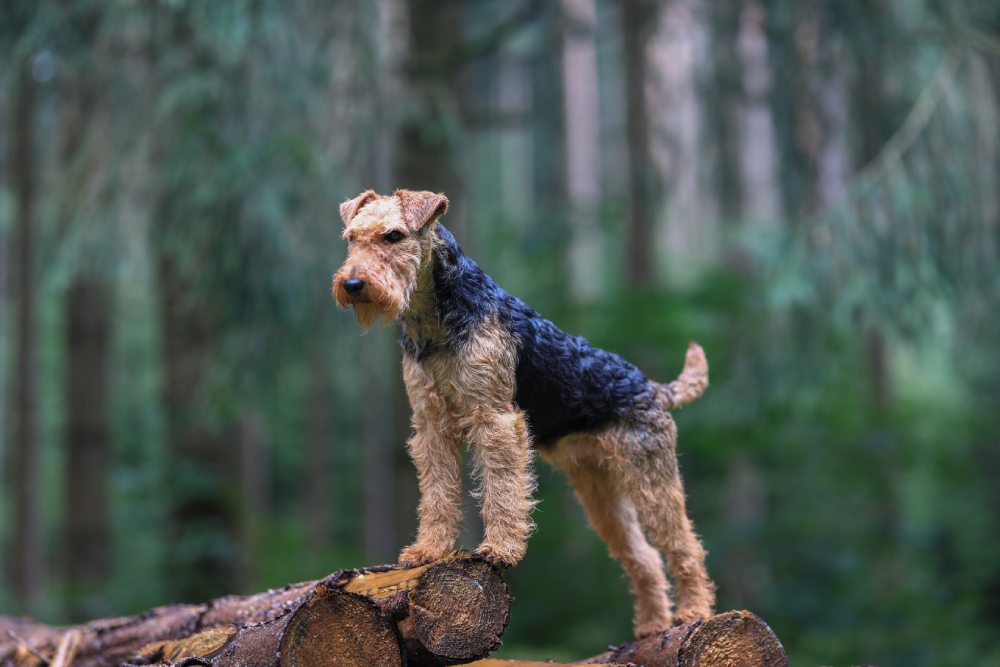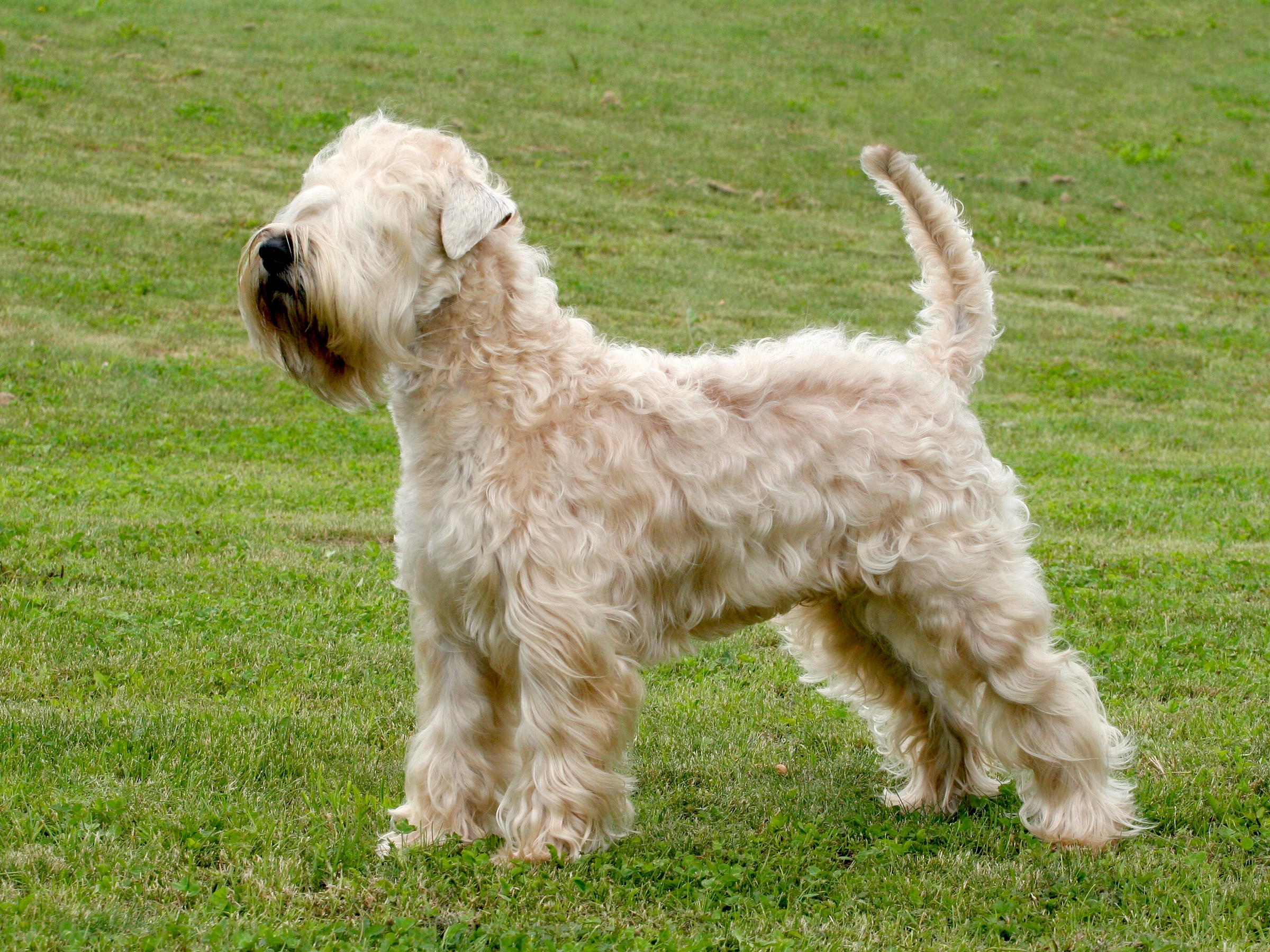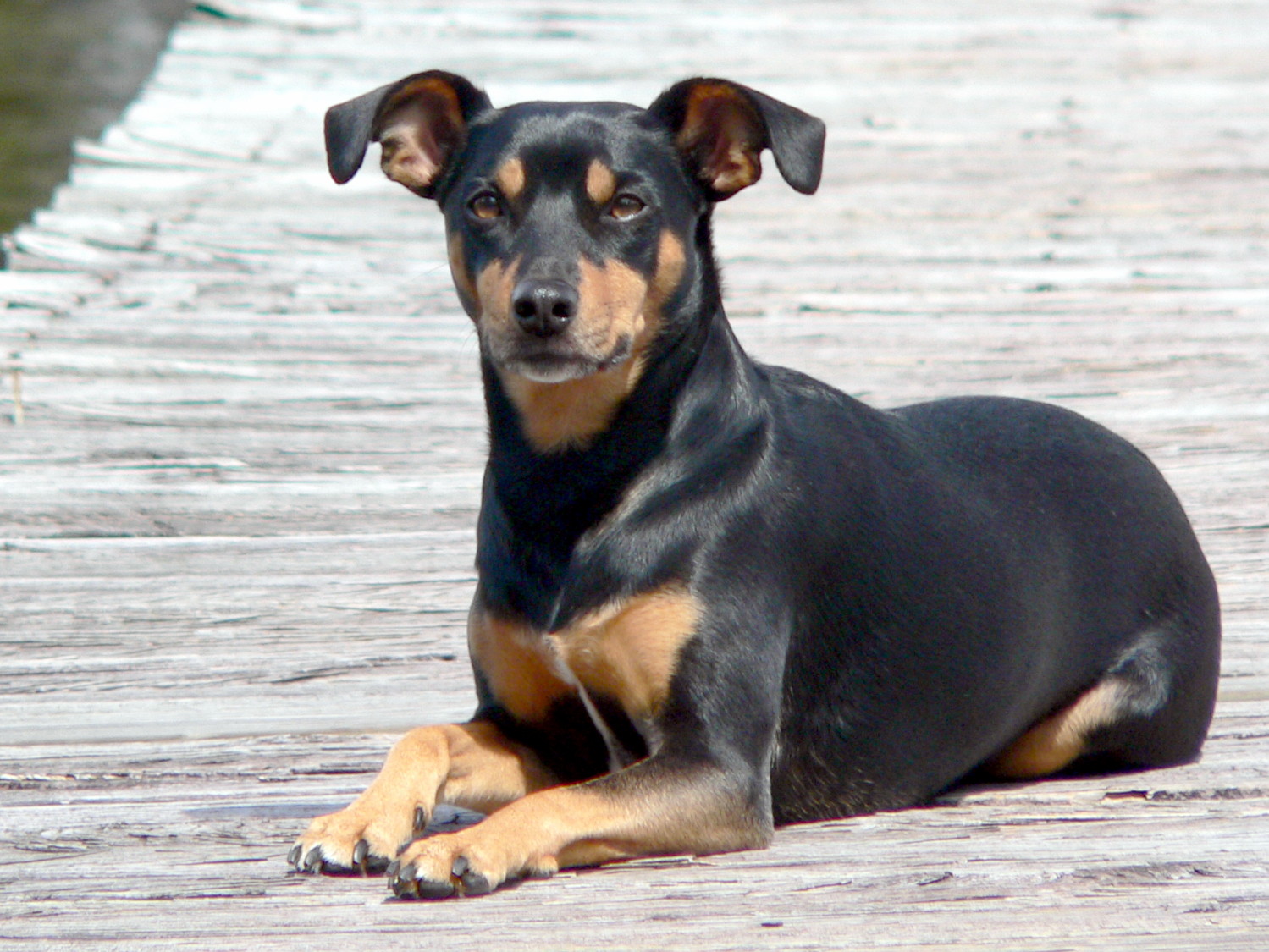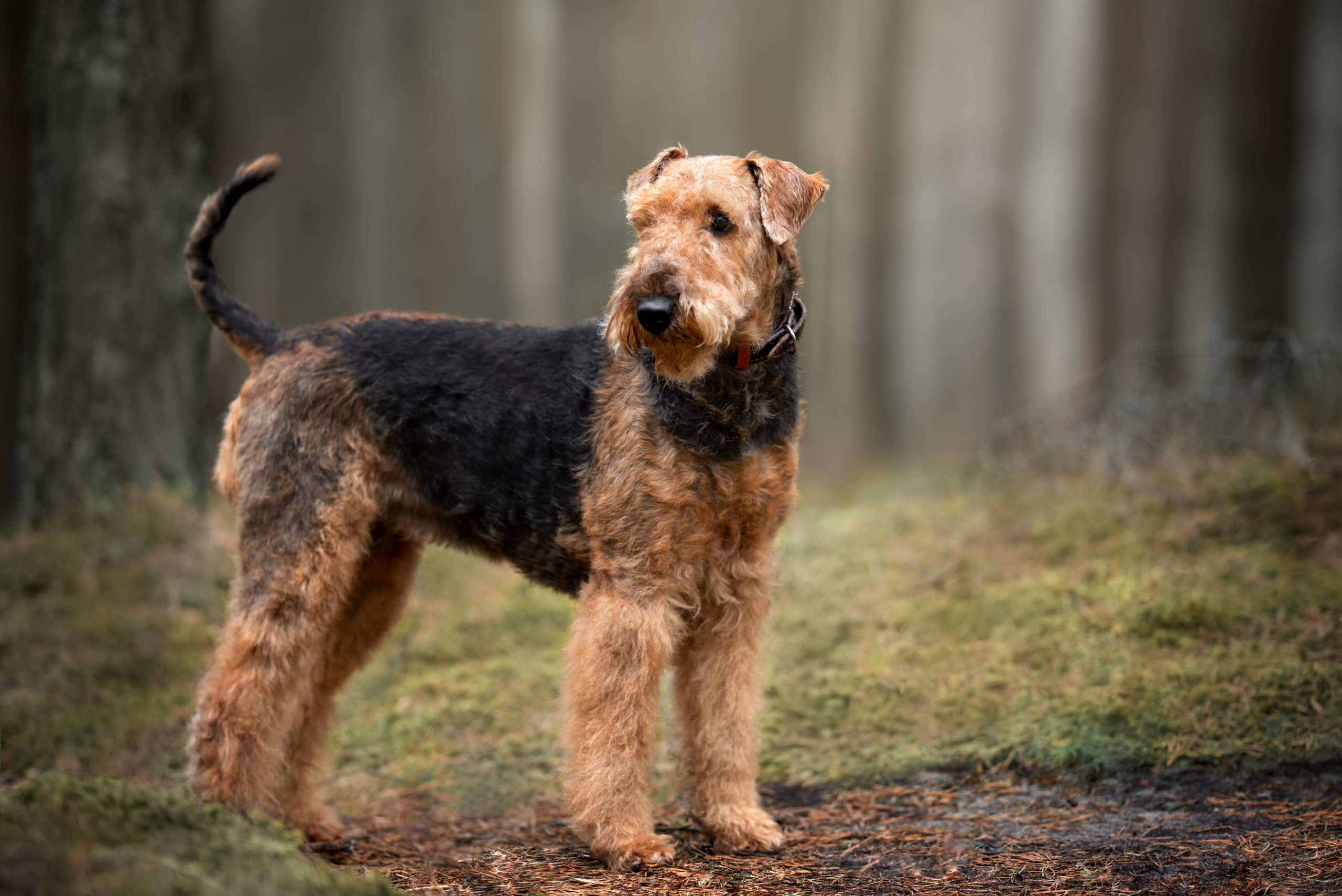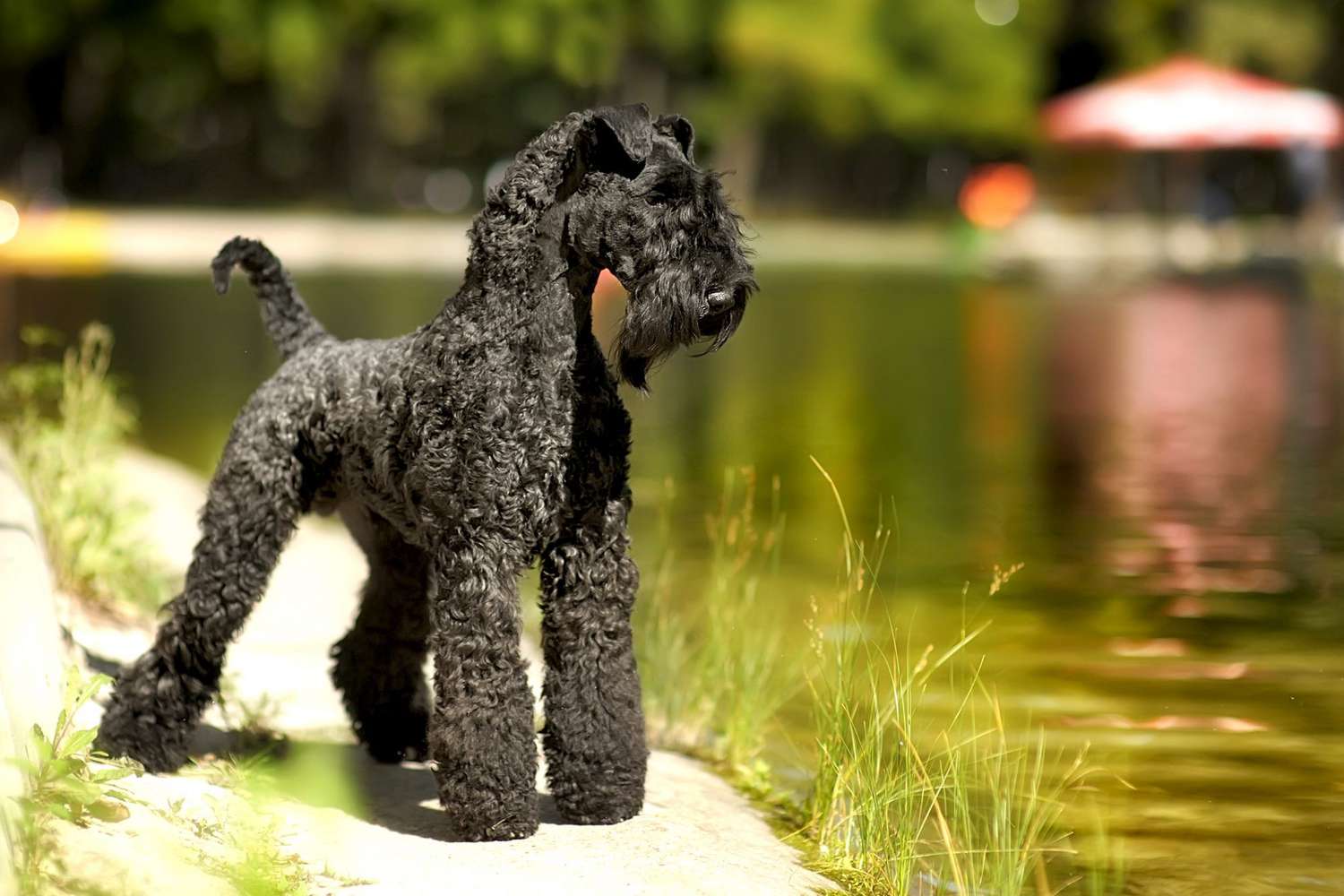Alright, gather ’round, terrier aficionados! Today, we’re shining a spotlight on a breed that’s often described as a “big dog in a small package”: the Welsh Terrier. Don’t let their compact size fool you – these spunky canines are bursting with personality, energy, and a whole lot of love to give. If you’re looking for a dog who’s equal parts playful companion and loyal family member, this wire-haired charmer from Wales might just be your perfect match. Let’s dive into what makes the Welsh Terrier so wonderfully unique!
Meet the Welsh Terrier: A History as Rich as Their Coat
Hailing from the rugged landscapes of Wales, the Welsh Terrier boasts a history that stretches back centuries. They were originally bred as versatile farm dogs, adept at hunting foxes, badgers, and other vermin. Their sturdy build, wiry coat (providing protection from the elements and thorny underbrush), and tenacious spirit made them invaluable partners for farmers. In fact, they are one of the oldest terrier breeds in Britain, with roots that predate even the more well-known Airedale Terrier.
Over time, their charming personality and manageable size also made them popular as family companions. While they retain that inherent terrier drive, modern Welsh Terriers are cherished for their playful nature, intelligence, and unwavering loyalty to their humans. They’ve successfully transitioned from working dogs to beloved members of households around the globe, proving that good things truly do come in small, wire-haired packages.
The Welsh Terrier Temperament: Spirited, Sociable, and Steadfast
Living with a Welsh Terrier is like having a perpetual ray of sunshine with a touch of delightful mischief. They are known for their friendly and outgoing nature, their zest for life, and their deep affection for their families.
- Friendly and Outgoing: Welsh Terriers are generally sociable dogs who enjoy meeting new people and getting along well with children. Their happy-go-lucky attitude is quite infectious.
- Intelligent and Eager to Please: These are smart cookies who enjoy learning and are generally eager to please their owners, making training a rewarding experience (most of the time!).
- Playful and Energetic: Don’t let their moderate size fool you – Welsh Terriers have a good amount of energy and love to play. They enjoy walks, games of fetch, and exploring their surroundings.
- The Terrier Tenacity: Being terriers, they possess a certain determination and can be independent thinkers. This can sometimes translate to a bit of stubbornness during training, but with patience and consistency, they respond well.
- Alert and Courageous: They are naturally alert and will often bark to announce visitors or anything they deem out of the ordinary. While not overly yappy, early training can help manage their barking tendencies. Their inherent courage means they won’t back down easily, even when faced with larger animals.
- Loyal and Affectionate: Welsh Terriers form strong bonds with their families and are known for their affectionate nature. They enjoy being involved in family activities and are always up for a cuddle on the couch.
Caring for Your Welsh Terrier: Keeping the Wirey Wonder Thriving
Bringing a Welsh Terrier into your life means embracing their energetic spirit and wiry charm. Here’s what you need to know to keep them happy, healthy, and looking their best.
Grooming: Maintaining the Classic Wire Coat
That distinctive wiry coat is a hallmark of the Welsh Terrier and requires specific grooming to maintain its texture and prevent matting.
- Regular Brushing: Weekly brushing is essential to remove loose hair and prevent tangles. A slicker brush and a metal comb are your best tools for this task.
- Hand Stripping: To maintain the proper wiry texture and vibrant color of their coat, Welsh Terriers ideally need to be hand-stripped every 6-8 weeks. This involves manually plucking out the dead outer coat to allow new growth. While you can learn to do this yourself, many owners opt for a professional groomer experienced with hand-stripping.
- Clipping (as an alternative): If hand-stripping isn’t feasible, clipping is an option, but it will soften the coat’s texture and may dull its color over time. Discuss the best approach with your groomer.
- Bathing: Bathe your Welsh Terrier as needed, usually every few months, using a good quality dog shampoo formulated for wiry coats. Avoid over-bathing, as it can strip the coat of its natural oils.
- Nail Trimming: Keep their nails trimmed to a comfortable length.
- Ear Care: Regular ear cleaning is important to prevent infections.
Exercise: Fueling the Fun-Loving Spirit
Welsh Terriers are energetic dogs who need regular exercise to stay physically and mentally stimulated.
- Daily Walks: Aim for at least two good walks per day, totaling around 30-60 minutes. They enjoy exploring and sniffing their surroundings.
- Playtime: They love to play! Games of fetch, chasing toys, and interactive play sessions in the yard are excellent ways to burn energy and bond with your Wheaten.
- Mental Stimulation: Don’t forget to exercise their minds too! Puzzle toys, training sessions, and interactive games will keep them engaged and prevent boredom.
- Secure Fencing: Due to their terrier instincts and potential prey drive, a securely fenced yard is essential to prevent them from chasing after squirrels or other small animals.
Training: Smart and (Mostly) Eager to Please
Welsh Terriers are intelligent and generally enjoy learning, which makes training a rewarding experience. However, their independent nature can sometimes present a slight challenge, so patience and consistency are key.
- Early Socialization: Expose your Welsh Terrier puppy to a wide variety of people, places, sounds, and other animals from a young age. This helps them develop into well-adjusted and confident adults.
- Positive Reinforcement: Welsh Terriers respond best to positive training methods like treats, praise, and toys. Harsh methods can be counterproductive with this sensitive breed.
- Consistency is Key: Be consistent with your commands and expectations. Firm but fair leadership will help them understand what is expected of them.
- Make it Fun and Engaging: Keep training sessions relatively short, varied, and fun to maintain their interest. They can get bored with repetitive drills.
- Address the Prey Drive: Their strong hunting instincts mean you’ll need to work on a reliable recall and be mindful of small animals when they are off-leash (even in seemingly secure areas).
Health: Keeping Your Welsh Terrier in Tip-Top Shape
Welsh Terriers are generally a healthy breed with a lifespan of 12-15 years. However, like all breeds, they can be predisposed to certain health conditions.
- Hip Dysplasia: A condition affecting the hip joint. Responsible breeders will screen their breeding stock.
- Eye Issues: Including lens luxation (where the lens of the eye becomes displaced) and glaucoma. Regular eye exams are important.
- Hypothyroidism: A condition where the thyroid gland doesn’t produce enough thyroid hormone.
- Allergies: Some Welsh Terriers can be prone to skin allergies.
Choosing a reputable breeder who screens their dogs for genetic health issues is crucial. Regular veterinary checkups are also essential for early detection and preventative care.
Is a Welsh Terrier Right for You? Some Things to Consider
Welsh Terriers are wonderful dogs, but they’re not a perfect fit for every lifestyle. Consider these points before welcoming a wire-haired friend into your home:
- Grooming Commitment: Are you prepared for the regular brushing and the commitment to hand-stripping (or regular professional clipping)?
- Energy Levels: Can you provide the daily physical and mental exercise they need?
- Training and Socialization: Are you ready to invest the time and effort in consistent training and early socialization?
- Terrier Temperament: Are you comfortable with their potential for independence and prey drive?
- Need for Interaction: While not overly clingy, they do thrive on interaction and being part of the family.
Welsh Terrier FAQs: Your Burning Questions Answered
- Do Welsh Terriers shed a lot? Welsh Terriers are considered low-shedding, especially when properly hand-stripped. Clipping will result in more shedding.
- Are Welsh Terriers good with children? Yes, they are generally known to be good with children, especially when raised with them. Their playful nature makes them great companions for kids.
- How much does a Welsh Terrier puppy cost? Prices can vary depending on the breeder, lineage, and location, but you can typically expect to pay anywhere from $1200 to $2500 or more for a puppy from a reputable breeder.
- Are Welsh Terriers good for first-time dog owners? While they are intelligent and eager to please, their terrier independence and grooming needs might make them better suited for owners with some prior dog experience or those willing to learn and commit to their specific needs.
Conclusion: The Welsh Terrier – A Spirited and Steadfast Companion
The Welsh Terrier is a delightful breed that offers a wonderful blend of playful energy, loyal companionship, and distinctive good looks. Their spirited nature and manageable size make them a popular choice for families and individuals alike. If you’re prepared to embrace their terrier charm, commit to their grooming needs, and provide them with the exercise and training they require, you’ll be rewarded with a steadfast and endearing companion who will bring endless joy to your life.
